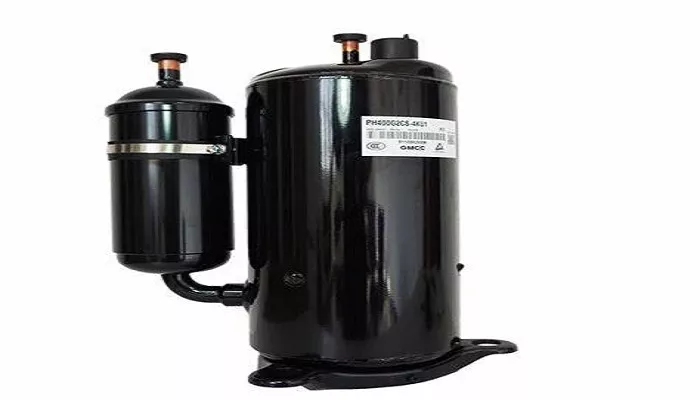When selecting an air compressor, one of the most critical specifications to consider is the CFM (Cubic Feet per Minute) rating. This metric determines the compressor’s ability to deliver a continuous flow of air, directly impacting its performance in various applications. Whether you’re using an air compressor for industrial manufacturing, automotive work, or DIY projects, understanding CFM is essential for choosing the right machine.
What Is CFM? Definition & Importance
Basic Definition of CFM
- Higher CFM = More air delivery = Better for heavy-duty tools
- Lower CFM = Less air delivery = Suitable for light-duty applications
Why Is CFM Important?
- Tools will underperform or stall.
- The compressor will overwork, leading to overheating and premature failure.
- You may experience pressure drops, reducing efficiency.
For example, a paint sprayer might require 5-10 CFM, while an impact wrench may need 4-7 CFM. If your compressor can’t meet these demands, the tool won’t function properly.
Different Types of CFM Ratings
SCFM (Standard Cubic Feet per Minute)
- Measured under standard conditions: 68°F (20°C), 14.7 PSI (sea level), and 0% relative humidity.
- Provides a consistent benchmark for comparing compressors.
- Most commonly used in technical specifications.
ACFM (Actual Cubic Feet per Minute)
- Measures CFM at actual operating conditions (temperature, altitude, humidity).
- Since air density changes with conditions, ACFM varies from SCFM.
- Important for high-altitude or high-temperature environments.
ICFM (Inlet Cubic Feet per Minute)
- Measures airflow at the compressor’s inlet, before compression.
- Used in engineering calculations but less common in consumer specs.
How CFM Affects Air Compressor Performance
Impact of PSI on CFM
- CFM is always tied to a specific PSI (e.g., 5 CFM at 90 PSI).
- As PSI increases, CFM decreases (compressor works harder to maintain pressure).
- Always match your tool’s PSI and CFM requirements to the compressor’s output.
Single-Stage vs. Two-Stage Compressors
Single-Stage: Delivers air in one compression cycle (lower CFM, suitable for small tools).
Two-Stage: Compresses air twice, providing higher CFM for industrial use.
Factors Influencing CFM Requirements
Type of Pneumatic Tools
| Tool | Average CFM Requirement |
|---|---|
| Airbrush | 0.5 – 2 CFM |
| Brad Nailer | 0.3 – 1 CFM |
| Impact Wrench | 4 – 7 CFM |
| Paint Sprayer | 5 – 10 CFM |
| Sandblaster | 10 – 20 CFM |
Altitude & Temperature Effects
- Higher altitude = Less dense air = Lower effective CFM.
- Hotter temperatures reduce air density, requiring a higher CFM rating.
How to Calculate CFM for Your Tools
Step-by-Step CFM Calculation
- List all tools you plan to use.
- Check each tool’s CFM requirement (usually in the manual).
- Add CFM values if using multiple tools simultaneously.
- Add a 30% buffer to account for leaks and inefficiencies.
Using Manufacturer’s Data
- Most compressors list CFM at 40 PSI and 90 PSI.
- Choose based on your highest-PSI tool.
Common Mistakes When Evaluating CFM
Ignoring Duty Cycle
A 3 CFM compressor with a 50% duty cycle can’t sustain 3 CFM continuously.
Overlooking PSI Requirements
A tool needing 90 PSI won’t work well if the compressor only delivers CFM at 40 PSI.
Not Accounting for Future Needs
If you plan to upgrade tools, buy a compressor with higher CFM capacity.
Choosing the Right Air Compressor Based on CFM
For Home/DIY Use (1-10 CFM)
- Small nail guns, airbrushes, inflators.
- Portable compressors (1-6 CFM) are sufficient.
For Automotive/Garage Use (5-20 CFM)
- Impact wrenches, sanders, paint sprayers.
- 20-30 gallon tanks with 5-10 CFM are ideal.
For Industrial Use (20+ CFM)
- Sandblasters, heavy-duty drills.
- Two-stage compressors or rotary screw compressors required.
Conclusion
You can avoid underpowered compressors and ensure efficient operation. Always calculate your CFM needs and choose a compressor with at least 30% extra capacity for optimal performance.Whether for home use, automotive repair, or industrial applications, the right CFM rating ensures your air compressor meets demand without failure.

